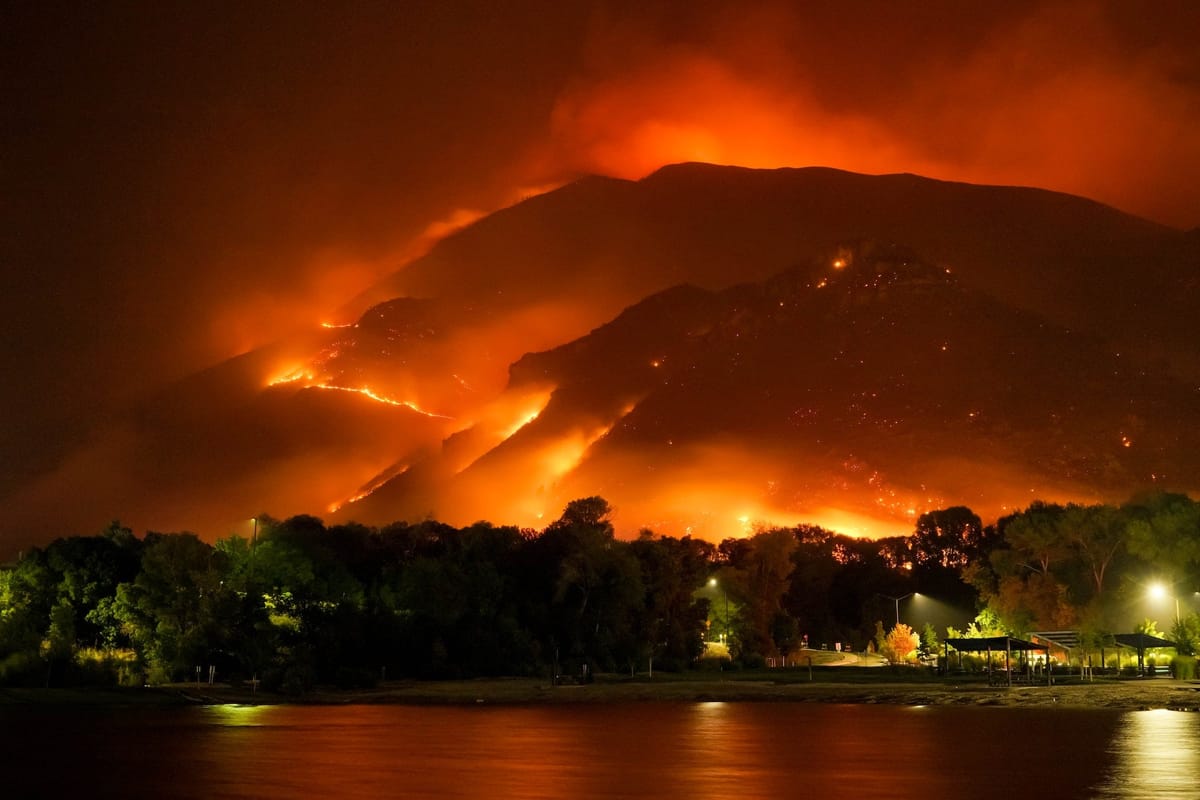What are the Causes of Climate Change and How to Mitigate It
Climate change has today become the object of global attention and has been a topic for heated debate.

Climate change is the topic of the decade, if not the issue of the century. History will not only judge our generation on our handling and propagation of climate change, but also on the efforts we have put in place to mitigate it. Climate change has led to mutant or evolving climate and weather patterns that have, in turn, led to increased climate oddities and extremes. Heatwaves have ravaged the world, and just yesterday, death valley in California recorded 54.4 degrees Celsius or 130 degrees Fahrenheit, the highest-ever recorded temperature. I don’t think we can appreciate what that means.
Climate Protests in the Wake of Adverse Climatic Effects
Climate change has today become the object of global attention and has been a topic for heated debate. There have also been numerous protests, including the Fridays for Future protests by school children, to encourage global leaders to instigate climate change-related legislation. Climate change was previously appreciated as global warming and has now evolved to include other phenomena such as the rise of ocean levels, the melting of polar ice caps and glaciers, and unusual and extreme weather patterns. The predictability of weather that was previously enjoyed all over the world is today becoming increasingly non-existent as climate change propagates unusual and destructive weather patterns.
The Consequences of Climate Change and How Lives Are Being Ruined
Can you imagine the shock of literally losing one’s home due to a mudslide or flood, or the sea rising? Mother nature can be very harsh when we neglect our collective responsibility to care for the environment. Most of us who live outside the United States may not appreciate what weather phenomena such as tornadoes can do to a town. I don’t think all of us living here in Africa have seen this.
Cyclones in Africa
Cyclones have been the most extreme forms of truly harsh weather here in Africa. Luckily, the tropical climate of Africa and other places means that severe weather is a rarity. I should recognize, however, that our continent faces flooding and will also likely have to grapple with rising ocean or sea levels.
The Point of Inflection and the Onset of Climate Disaster
The world is at a point of inflection and this entails the depletion of carbon stores all over the world. As I write this, fires are raging in the United States and the Amazon forest. The amazon forest, in particular, is critical to how well the world can absorb and store carbon. The presence of the Amazon forest and its growth and nurturing are crucial to the stability of the climate, and the amount of carbon in the atmosphere.
Why Face Masks Existed in Places Like Delhi Long Before COVID-19
Before the current pandemic, for instance, individuals in cities such as Delhi, India, were already familiar with wearing face masks as a way to avoid inhaling polluted air and toxic particles in the air. Masks are today synonymous with the lockdown and overall health. Cities globally have poor air quality due to the proliferation of vehicles emitting CO2 into the atmosphere.
The Role of Gas-Powered Vehicles in Propagating Climate Change and Polluting Major Cities
Most cars burn fossil fuels and release toxic fumes into the atmosphere. As such, the more the cars in a particular city, the higher its air pollution, and the lower its air quality. As such, driving or traveling in your vehicle when you don’t need to could be harming the environment.
One can save money and contribute to ensuring the mitigation of climate change by using public transportation or cleaner transport alternatives such as cycling when they do not need to travel in their car. For example, if one can take a train ride for thirty minutes instead of driving to their destination, they will not only save on fuel or gas money but also on time, and that will ensure that they have helped conserve the environment.
The Essence of Environmental Conservation and Its Role in Mitigating Climate Change
Environmental conservation is essential to the future of our world. Future generations will suffer the most if we fail to put in place systems and measures to incentivize and encourage environmental conservation. Incentivization could include the subsidization of public transport. Some locations and cities in the world have even considered offering free train rides as a way to encourage people to use public transport.
The Subsidization of Public Transport and Electric Vehicles and Its Importance in Averting the Climate Crisis
The use of electrically powered motor vehicles is incentivized by the installation and maintenance of numerous charging ports. The electric cars and vehicles themselves have also been subsidized to ensure that they are more affordable and attractive to buyers. Hybrid or fully electrical vehicles do not have to be a compromise on build or quality, and high-end vehicle manufacturers have also entered the electric vehicle market. Consequently, this means that even 300-miles-per-hour fast cars have a hybrid or fully electric variants to ensure that going green does not necessarily curtail quality or luxury. In this regard, taking a chance on hybrid or fully electric cars is worth it.
How We Can Shift Our Daily Practices to Ensure We Play a Role in Curbing Climate Change
Our daily practices also matter, and they do heavily. What you and I do and the various ways we interact with the environment can be the determining factor on whether the world is salvageable from the negative consequences of climate change. For instance, if you use solar energy to power your home, you would offset a considerable amount of energy over five years. It would not only benefit the environment but also save you a lot of money on energy bills. The same can applies to water, and those who collect rainwater and heat it using solar energy can ensure increased savings, and better and climate-friendly utility.
The Importance of a Collective Effort in Environmental Conservation in Ensuring Maximum Impact
When some of us take measures to conserve the environment, and others don’t, we are all held back, and our collective efforts watered down. However, if we can encourage ourselves and others to care for the environment adequately, we will ensure that as the human species, we rejuvenate and nourish the environment. When others fail to do their part, and you do yours, however, do not worry about their efforts or lack thereof, and you should know that your effort counts in the long run. Those that ignore climate change will miss a lot of financial savings, and the sense of community and togetherness that comes with fighting and mitigating climate change as a united global community.
Consumerism and Its Role in Causing Climate Change
Nations and entire regions and continents have a pivotal role to play when it comes to how effectively the world can deal with and mitigate climate change. For instance, Africa and the various regions within our continent have always advocated for tree planting en masse, as a way to ensure that we not only attract rainfall but also have enough carbon stores. Afforestation and reafforestation are overarching practices that ensure that the world and mother nature are rejuvenated and stay nourished. We should also discourage and shun irresponsible deforestation and the excessive cutting of trees.
The Role We Consumers Play in Propagating the Need for Wood and the Consequent Deforestation
Consumer demand drives such practices, and when we as consumers avoid the excessive use and dependence on wood, we will drive down demand and ensure a more sustainable manufacturing sector. The same can applies to non-biodegradables, including plastic. Scientists estimate that the Atlantic ocean alone has more than 21 million metric tonnes of microplastics.
What are Microplastics and How Consumerism has Propagated Their Existence in Our Oceans
These are small shred-sized pieces of plastic that have ended up in the seas and mostly emanate from consumer products and consumerism. These get ingested by marine life and will most often lead to suffocation for such animals or starvation when the animals cannot ingest as much food due to microplastics in their systems. Even when these get manufactured into daily-use items, they should be disposed of correctly.
Ensuring Correct Waste Disposal as a Way to Ease and Bolster Recycling
Disposal entails sorting and separating various types of waste. Companies that use a lot of non-biodegradable packaging, for instance, should ensure that they have systems in place to dispose of their used packaging materials. Such action could entail reducing, recycling, or reusing, and the encouragement of the same.
Again, when we consumers shun away from products with such packaging, we encourage the companies to use biodegradable packaging or to put in place mechanisms to ensure effective disposal. As consumers, we should also pay attention to the instructions on packaging about disposal and recycling when we cannot avoid using a particular product.
Fossil Fuels and How they Continue to Propagate Climate Change
Oil shipping and transportation have not only exacerbated the harmful effects of fossil fuels but also added to the damage of fossil fuels on the environment. When oil logistics and shipping companies fail to deliver the fuel safely, and it spills onto the sea, a lot of the fauna and flora die. Similar events have been happening in Mauritius after an oil tanker spilled thousands of liters of oil onto the sea.
The cleanup effort has been massive but has faced numerous hurdles in undertaking the different levels of cleaning needed. For instance, when the oil spreads to the mangroves, the cleanup volunteers are unable to scoop the oil as the roots of the mangroves effectively are exposed and can impede efforts to use shovels or other scooping containers.
The Importance of Caution when Shipping Fossil Fuels to Avoid Oil Spills
When the oil is shipped, it should be shipped with extreme caution as spills effectively choke the ecosystem of the seas. A lot of marine life is lost, and even other members of the food chain such as birds are trapped when the oil impedes their ability to fly. The weight of the oil on the bird’s feathers makes the feathers and the bird too heavy to fly.
The risk for and the occurrence of oil spills globally lead to increased calls for the cessation of the use of fossil fuels. Even as this may be impractical in this decade, or the next few decades, there need to be systems that ensure the world moves away from dependence on fossil fuels. Independence in the energy sector, therefore, would mean the effective and exclusive use of renewable energy sources.
Renewable Energy as a Sustainable Way to Mitigate Climate Change
Hydroelectricity and geothermal energy are some of the sources of renewable energy that we should invest in. Nations and companies can ensure sustainability by investing in such sources of energy. They can effectively help reduce or offset the damage caused by climate change. When we use sustainable energy and use energy sustainably, we can mitigate the ravages of climate change and offset the use of unsustainable sources of energy.
The Role of Research and Renewable Energy in Offsetting Carbon Emissions
Offsetting would also be complemented by the research that would go into establishing and running alternative and renewable sources of energy. Such research would be crucial in ensuring that we learn new and emergent ways and approaches for tapping into renewable sources of energy. When we are in a position to deploy technology to source renewable energy and can do it cheaply, we will allow all parts of the world with the potential to use such power the ability to tap into it. Moreover, we can even discover other forms of renewable energy and develop technologies to tap into them. A good example is tidal and waves power.
Mitigating Climate Change by Ensuring Sustainability in Our Lives and Activities
Climate change is real, and it is high time we all do our part in mitigating it. We should all drum up efforts to ensure that we live sustainably and endorse and encourage others to use sustainable means and products. When purchasing a product, we should undertake intense research to look into whether the product has been produced sustainably and is produced under fair labor practices. When we buy products that have been sourced at the expense of the environment or laborers, we not only harm the environment but also make it easier for such companies to continue doing so.
The Effects of Cheap Labor and Cost-Cutting on Climate Change
When companies wrongly acquire cheap labor, they can take advantage of laborers and the environment as their costs remain low. For instance, those who cut trees for wood may be encouraged to cut more trees when they pay wages that are below the recommended and legal minimum wage. Such action would mean that their costs would be low and they would afford to cut even more trees in a shorter period. The same goes for cash crop farming, including farming coffee, cocoa, palm oil, and guaranas, among others.
What You Can Do to Ensure that Your Food is Produced Ethically
When cheap labor is illegally and unethically sourced, the environment suffers due to the encouragement of exhaustive and exploitative practices. As such, we should all purchase products that have been produced in an environmentally friendly way and in line with fair and ethical labor practices. The good thing is that there exists technology to track production, and the internet can also be a good source of product information. Through research, we can cultivate knowledge of sustainability and build a culture for sustainable practices.
What sustainable practices do you undertake individually and collectively?
Varied Approaches to Mitigating Climate Change
We, the consumers, have the power to stop the exploitation of the environment and laborers all over the world. We can also help support the planting of trees and other environmental conservation efforts by using sustainable products. Numerous non-governmental organizations advocate for sustainability, and we should all participate in honest and sincere efforts of goodwill towards the environment and laborers.
Ensuring Sustainability by Ensuring Fair Labor and Fair Pricing Practices
When laborers are happy, they harvest their crops sustainably, plant trees, and care for their immediate ecosystems as a way to ensure that they can produce and grow their cash crops. When the benefits of producing cash crops reach farmers, they are motivated to take care of the environment and incentivized to ensure the longevity of their farming and production efforts.
We can mitigate climate change even as we may be on the very edge of extinction. We have the chance and opportunity to beat the odds and instigate a 360-degree turnaround. That would entail environmental conservation, the protection of ecosystems, sustainability, and defeating consumerism, environmental degradation, and exploitation.
The Importance of Innovation as a Determinant of How Well We Can Mitigate Climate Change
Our innovativeness and motivation will be the determining factors on whether climate change will spell doom for the world or be mitigated. Governments have the most responsibility in terms of creating laws that mandate the responsible use of natural resources and the incentivization of sustainability. If governments globally are on board with ensuring a carbon-neutral world, then the earth and mother nature will be revived and nurtured.
The Climate Change Mitigation Responsibilities of the Most Pollutive Countries
Almost sixty to seventy percent of the earth’s pollution comes from only ten countries, and these nations contribute the most to global pollution. They also have the largest populations and the largest economies. They should, therefore, be at the forefront of ensuring that there are systems and technologies in place to steer the world toward a carbon-neutral future. Their greenhouse gas emissions should also decrease, and they should come up with innovative ways of ensuring that they produce less pollution.
How to Ensure that Travel and Transportation No Longer Contribute Heavily to the Climate Crisis
Travel and transportation are some of the sectors that have contributed to increased greenhouse gas emissions, and we should figure out new ways to avoid or reduce travel using air especially, as it is the most pollutive. In my view, if you can get there by other means, it would only be right to use alternative ways and not fly there. The journey would likely be longer, but it would be worth the wait. You’ll have saved the world's detriment and helped ensure carbon neutrality.
The Power of Our Collective Impact on Defending the World Against the Climate Crisis
Your environmental conservation efforts matter and our collective impact is the most vigorous defense we have against the negative consequences of climate change. We can beat the deadline, avert the climate crisis, and have history recognize our collective efforts. The earth is our only home, and we are its only children. Mother nature is for us but won’t hesitate to return the favor if we are crude to her. The world is so beautiful, and you cannot imagine the lush flora and fauna out there. Please conserve the environment and encourage others to do the same. The earth is looking to you to defend it, as are our future generations.





